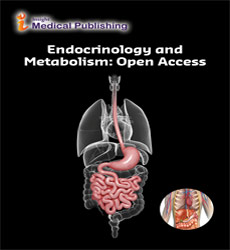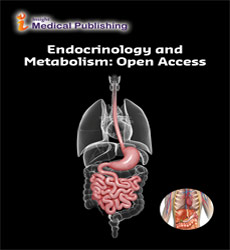An Open label Clinical Study to evaluate the Safety and Gastrointestinal tolerance (Product Compliance) of Maxvida Advance in Hospitalized patients requiring isocaloric formula for enteral tube feeding
Abstract
Introduction: Nutrition therapy is of utmost importance in hospitalized patients to meet their energy requirements and overcome the risk of underfeeding. Underfeeding can result in increased hospital length of stay and an increase in the incidence of infections and organ failure. It is thereby associated with a high risk of mortality. To overcome the issue of underfeeding, enteral nutrition is preferred over parenteral nutrition since it can be started within 24-48 hours of hospital admission of the patient. The objective of this study was to evaluate the safety and gastrointestinal tolerance of Maxvida® Advance in hospitalized patients who require isocaloric formula for enteral tube feeding. The gastrointestinal tolerance was evaluated on the basis of gastric residual volume (GRV) >500 ml, diarrhea-free days reduction in stomach irritation, regurgitation, abdominal bloating and vomiting. Safety was determined on the basis of adverse events profile of the supplement. Methodology In this open-label, clinical investigator-initiated clinical study, which was conducted between 24th Sep 2020 and 8th Nov 2020, at Navin Hospital, Ghaziabad, Maxvida® Advance, a nutritional supplement was administered to hospitalized patients. The participants were recruited based on their informed consent, and the exclusion criteria comprised individuals below 18 years of age or those with any evidence of organ dysfunction or severe clinical deterioration. Maxvida® Advance was administered at a dosage of 45g in 170 ml water (final volume 200 ml) for two feeds per day and was continued for five days. The GRV and BMI of the participants along with their serum albumin levels, and any incidents of gastrointestinal intolerance were recorded at each day during the study period. Results Ten male and five female participants were included with an average age ranging from 24 to 78 years (median 46.0). Their mean weight, height, and BMI were 61.47 kg, 162.05 cm, and 22.8 kg/m2 , respectively. Oral carcinoma and mandibulectomy were the most common reasons for advanced enteral feeding among these participants. Other medical conditions included asthma, sepsis, cellulitis/abscess, anemia, and breast cancer. It was observed that all the participants of the study had a good tolerance of the nutrition supplement since their GRV was within the limit of 500mL for all the study days. The administration of Maxvida® Advance corresponded with a greater number of diarrhea-free days with only 2 reports of diarrhea during the 5-day period. There were no reports of vomiting/nausea associated with the use of Maxvida® Advance during the study period. However, 4 reports of stomach irritation, and 3 reports each of regurgitation and abdominal bloating were made. None of the subject reported adverse events were assessed by investigator as related to Maxvida® Advance. The changes in BMI and serum albumin levels of the participants were not clinically significant (p>0.05). No unexpected adverse events were noted with the use of the product, and only mild side effects such as headache and gastritis were observed. Conclusion Based on the results of current study, Maxvida® Advance was concluded to be a safe and well-tolerated nutritional supplement, which can be prescribed in adult hospitalized patients at an appropriate dosage.

Open Access Journals
- Aquaculture & Veterinary Science
- Chemistry & Chemical Sciences
- Clinical Sciences
- Engineering
- General Science
- Genetics & Molecular Biology
- Health Care & Nursing
- Immunology & Microbiology
- Materials Science
- Mathematics & Physics
- Medical Sciences
- Neurology & Psychiatry
- Oncology & Cancer Science
- Pharmaceutical Sciences
